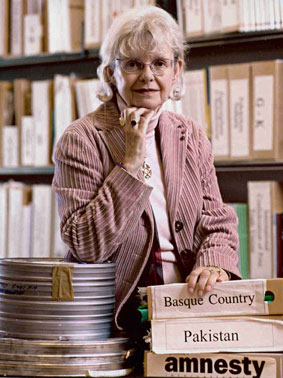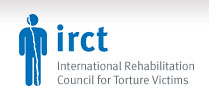Some people try to crush the human spirit. Others try to maintain or revive it. The IRCT belongs to the second category.
Inge Genefke is a Danish doctor who founded the ITCT in 1985. It aimed to do three things.
To rehabilitate people who had been tortured and to care for their families.
To educate people in the treatment of torture victims.
To contribute to the prevention of torture.
Since then the IRCT has grown and has groups all over the world. Here is the present mission that you can find on its web site.
The IRCT is a health-based umbrella organisation that supports the rehabilitation of torture victims and the prevention of torture worldwide.
Our members comprise more than 140 independent organisations in over 70 countries.
Our work is governed by these member organisations.
Today, we are the largest membership-based civil society organisation to work in the field of torture rehabilitation and prevention.
Here is some background on Inge and the work of the IRCT. You can find this on the web site and is based on Thomas Larsen’s book: The Meeting with Evil – Inge Genefke’s Fight Against Torture.
Dr Genefke became aware of the existence of torture while still a child during Germany’s occupation of Denmark in World War II.
With a father who was active in the Danish resistance movement there was a very real risk that torture would have a direct impact on her life.
Fortunately, that risk never materialised. But it had set a young girl on the path of remarkable journey.
In 1974, after training as a neurologist, Dr Genefke, together with three fellow doctors, responded to a call by Amnesty International (AI) to help diagnose torture victims and produce forensic evidence that could help hold torturers to account in a court of law.
Forming AI’s first medical group focusing on the question of torture, the doctors began to see torture survivors who had fled the cruel regimes then in place in Latin America, notably Chile, Argentina and Uruguay, as well as in Greece.
“After examining just the first 15 victims, we concluded they suffered horrible psychological sequelae. Of course we found physical sequelae.
“But the worst sequelae were psychological: depression and anxiety, the inability to concentrate and the terrible guilt”, says Dr Genefke, who has personally provided direct treatment to hundreds of torture survivors.
In 1982 she founded one of the world’s first clinics specialised in torture rehabilitation, the Rehabilitation Centre for Torture Victims (now the Rehabilitation and Research Centre for Torture Victims).
Three years later, she founded the International Rehabilitation Council for Torture Victims (IRCT).
Ever since she has worked incessantly and with fierce energy to garner support for the fight against torture, countless times addressing politicians and loudly criticising those in power in a wide-range of countries- democracies as well as dictatorships.
Commenting on the so-called “War on Terror” she has time and again refuted the notion that torture can be a safeguard against terrorism:
“Torture is not about extracting vital information to make the world a safer place, but rather to break the spirit of dissidents.
“It does not prevent terror; it creates terrorists. When you torture, you create violent hatred.
“If my father had been tortured by the Germans during their occupation I’m sure I would have become violent” says Dr Genefke.
The key to her remarkable achievements and dedication lies in her insistence that indifference and ignorance are the greatest foes of a world without torture:
“Often I am asked how I can stand being involved in this field.
“I also find it painful hearing about torture, but rather that than be left in ignorance.
“With knowledge, I can fight it.”
The knowledge and attention that her work has helped create plays no small role in the fact that across the world there is an ever-growing number of citizens who refuse to turn their backs on the mention of torture, let alone on its victims and those working against torture.
The IRCT continues with its necessary work around the world. It keeps the human spirit alive and has drawn the following response from the Dalai Lama:
“Your organisation is actually compassion implemented.”








Leave a Reply